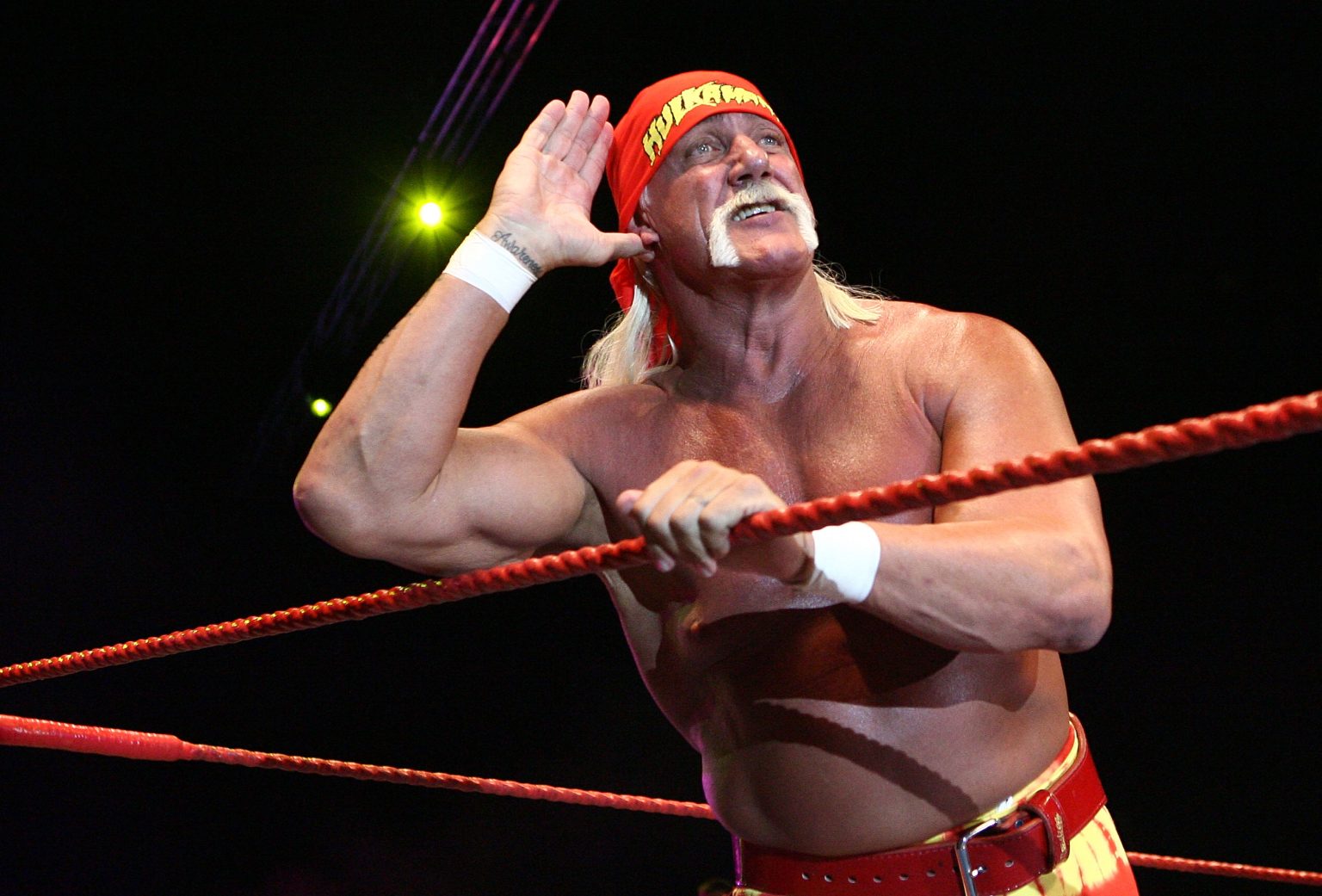The Netflix debut of WWE Monday Night Raw in Los Angeles witnessed an unprecedented and resounding rejection of wrestling icon Hulk Hogan. The audience, instead of celebrating the legendary wrestler’s appearance, erupted in a chorus of boos, drowning out Hogan’s attempts to promote WWE’s partnership with Netflix and his new Real American Beer. Accompanied by Jimmy Hart, who patriotically waved the American flag, Hogan’s usual charismatic presence was met with unwavering disapproval, painting a stark contrast to the adulation he typically receives. Hogan’s attempts to connect with the audience by referencing past wrestling partnerships with legends like Macho Man Randy Savage and Andre the Giant, and by emphasizing the historic nature of the WWE and Netflix collaboration, fell on deaf ears. The relentless boos forced Hogan and Hart to retreat from the stage, leaving a palpable sense of shock and disbelief in the arena.
The overwhelmingly negative reaction to Hogan stemmed from a deeply rooted controversy surrounding leaked audio from a 2015 sex tape published by Gawker. In the recording, Hogan was heard using a racial slur multiple times, sparking widespread outrage and condemnation. This incident led to Hogan’s temporary dismissal from WWE and his removal from the Hall of Fame, a significant blow to his career and legacy. While Hogan was eventually reinstated in 2018, the scars of the controversy remained, and the Los Angeles crowd’s reaction served as a stark reminder of the lingering resentment and unforgiveness. Actor O’Shea Jackson Jr., present at the event, openly admitted to participating in the booing, citing Hogan’s racist remarks as the driving force behind his actions. Jackson, in an appearance on the “Sway’s Universe” podcast, emphasized the detailed and explicit nature of Hogan’s rant, highlighting the difficulty in overlooking such offensive language.
Jackson further defended his stance by arguing that while some might suggest Hogan’s views were a product of a different generation, the hurt and offense caused by his words remain potent. He questioned the wisdom of bringing Hogan back into the spotlight, predicting the negative reception he ultimately received. Jackson’s justification resonated with many who felt that Hogan’s reinstatement did not adequately address the harm caused by his words. The incident underscored the complexities of public forgiveness and the enduring impact of hateful language, especially in the context of a public figure like Hogan. The Los Angeles crowd’s response served as a powerful public rebuke, highlighting the ongoing tension between Hogan’s legacy as a wrestling icon and the stain of his past actions.
The incident also drew a sharp contrast between Hogan’s reception and that of other wrestling legends who appeared at the event. Figures like John Cena, Dwayne “The Rock” Johnson, and The Undertaker were met with cheers and applause, demonstrating the audience’s ability to differentiate between individuals and their actions. While these wrestlers were celebrated for their contributions to the sport, Hogan’s appearance became a lightning rod for criticism and a reminder of the importance of accountability. The differing reactions highlighted the evolving landscape of professional wrestling fandom, where audiences are increasingly holding their heroes to higher standards of conduct both inside and outside the ring.
The fallout from the Hogan incident extended beyond the immediate event, sparking broader discussions about race, accountability, and redemption within the wrestling community and beyond. The incident became a case study in how past actions can continue to haunt public figures, even after apologies and attempts at rehabilitation. It also underscored the power of audience reaction in shaping public perception and holding individuals accountable for their words and actions. The boos directed at Hogan were not merely a fleeting moment of disapproval; they represented a deeper reckoning with the legacy of racism within the wrestling industry and the ongoing struggle for social justice.
In conclusion, the resounding rejection of Hulk Hogan at the Netflix debut of WWE Monday Night Raw in Los Angeles served as a powerful reminder of the lasting impact of hateful language and the complexities of public forgiveness. The incident highlighted the changing expectations of fans and the growing demand for accountability from public figures. While Hogan’s legacy as a wrestling icon remains, it is now inextricably linked to the controversy surrounding his racist remarks, a stain that continues to shape public perception and influence his reception. The incident underscored the importance of addressing issues of race and discrimination head-on, both within the wrestling community and in broader society, and served as a potent example of the power of audience voice in demanding change and holding individuals accountable for their actions.

